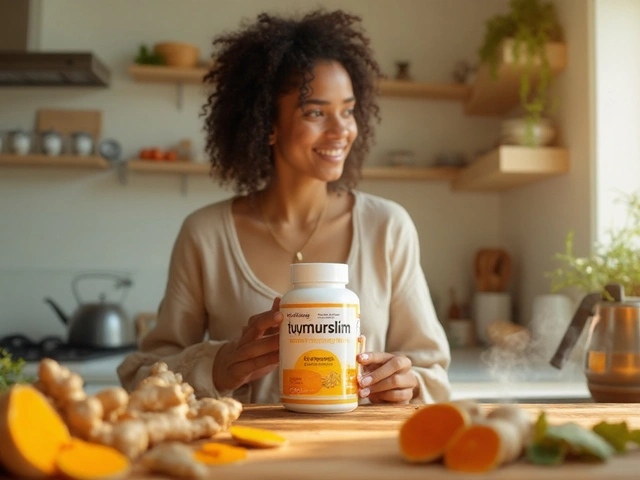Want to know what’s been showing up in health stores and social media alike, getting people talking from gym rats to beauty bloggers? Canthaxanthin, a tongue-twister if there ever was one, is quietly becoming the talk of the health world. Some swear by its glow-boosting abilities, while others praise its potential to ward off damaging free radicals. Not heard of it before? You’re not alone, but you’re about to become the person in the group chat who actually knows what this stuff is and if it’s worth the hype.
The Science and Story Behind Canthaxanthin
Let’s start here: Canthaxanthin isn’t just something cooked up in labs for supplements. It’s actually a carotenoid — yep, the same class of pigments that gives salmon its pink shade and flamingos their famous coloring. Found naturally in some mushrooms, algae, and even tiny sea creatures, canthaxanthin made its first appearance in the supplement world mainly as a tanning agent. People took it hoping for a sunny glow without hitting the sunbeds or risking skin cancer. Spoiler: it sort of worked, but we’ll get into that.
The thing is, canthaxanthin isn’t just a pigment. Scientists dug deeper and started thinking about it as an antioxidant. You know how every year, there’s another “superfood” that’s supposed to save us from stress, pollution, and aging? Often it’s because they’re packed with antioxidants, which pretty much act as tiny bodyguards for your cells, fighting off unstable molecules known as free radicals. When free radicals run rampant, your risk of inflammation and chronic diseases goes up. Antioxidants, like canthaxanthin, are nature’s way of keeping chaos at bay.
What sets canthaxanthin apart is how easily it dissolves into fatty tissues in the body. This means it sticks around long enough to get to work on the cellular frontlines. Its structure closely resembles beta-carotene (think: carrots and their link to healthy eyes), but canthaxanthin seems to go a step further, with more robust antioxidant action in some situations. No wonder animal feed producers have been adding it to give fish and poultry a better color for years, knowing it’s both safe and effective — at the correct dose. The real shift happened when researchers started exploring what would happen if we gave the same stuff to humans in supplement form, and it’s spiraled into the health and wellness trend we’re seeing now.
Here’s a cool fact: a study published in the "International Journal of Food Sciences and Nutrition" in 2022 showed that canthaxanthin could help improve the body’s antioxidant status in people exposed to high environmental stress — say, city dwellers, shift workers, and those dealing with constant screen time. Now, while we shouldn’t run wild with one study, that’s a reason enough for more scientists to start paying attention.
But — and there’s always a but — you can’t grab any canthaxanthin off the shelf and expect instant benefits. The doses matter, and overdoing it can create issues (like turning the skin a weird shade of orange-brown — it’s called carotenodermia, no joke). Food sources rarely give you enough to reach this point, but if you’re popping high-dose pills, pay attention.
Here’s a table with some quick nutritional info so you can see how canthaxanthin stacks up next to better-known carotenoids:
| Carotenoid | Main Natural Sources | Main Health Benefit | Risk of Overdose |
|---|---|---|---|
| Canthaxanthin | Mushrooms, algae, fish | Antioxidant, skin pigment | Skin discoloration with high dose |
| Beta-Carotene | Carrots, sweet potato | Eye health, immune support | Yellow-orange skin at high dose |
| Lutein | Leafy greens, corn | Eye protection | No known toxicity |
Scientists are still figuring out just how far these benefits go, whether it’s safe for everyone, and the ideal way to use it. But right now, canthaxanthin is standing on the edge of something interesting — it’s not just another ingredient but potentially a key player in how we fight oxidative stress.

Canthaxanthin in Your Diet and Supplements: The How and Why
You won’t find a canthaxanthin latte in your local coffee shop, but you might spot it listed on the back of some supplements — especially those promising sunless tanning, eye support, or general wellness. So, what’s the big deal about adding it to your routine, and more importantly, how do you actually get it?
First, let’s talk about natural food sources. Most people don’t eat enough canthaxanthin-rich foods to make a real difference; you’d need to eat a wild amount of mushrooms or drink algae shakes every day (which sounds…unpleasant). That’s why most of the buzz is around supplements. Capsules are by far the most common format, but you’ll see canthaxanthin in some “beauty from within” drink mixes and tablets targeting skin health. It’s sometimes blended with other carotenoids, so keep an eye on the ingredient list — that’s where the details hide.
Why do people take canthaxanthin at all? The three most popular reasons:
- Sunless Tanning: At doses from 30–120 mg/day, canthaxanthin can add a subtle bronze to skin tone over weeks. It doesn’t dye your skin; it builds color from within by getting stored in the fat under your skin. No UV rays, no sun damage.
- Antioxidant Protection: Some health enthusiasts use canthaxanthin to reduce the effects of oxidative stress, especially if they’re exposed to a lot of pollution or have demanding lifestyles.
- Eye Health: Like lutein and zeaxanthin, canthaxanthin is being explored as a possible helper for the eyes, especially for folks glued to screens all day. Research is still early, but the idea is that added carotenoids protect the cells in the retina.
People often ask: "Is it safe? Do I need to talk to my doctor first?" Here’s the scoop. The FDA hasn’t set an official recommended daily allowance for canthaxanthin because, honestly, there isn’t enough long-term study to nail down a number. In Europe, the European Food Safety Authority (EFSA) capped the acceptable daily intake at 0.03 mg per kg of body weight. For a 70 kg (about 154 lbs) adult, that’s roughly 2 mg/day — much lower than the sunless tanning dose. So if you’re buying supplements, check their actual dosage. The skin-coloring effect, carotenodermia, has only been reported at large, prolonged doses, sometimes upwards of 90–100 mg/day over several weeks.
If you want to give canthaxanthin a shot, try these tips to get the most (and safest) results:
- Always start with the lowest dose and see how your body feels. More isn’t always better.
- Combine with a healthy diet — antioxidants work best when they’re not battling bad habits alone.
- If you’re using it mainly for sunless tanning, don’t expect an overnight transformation. Most users notice changes after 2–4 weeks.
- If you have any history of liver issues, retinal diseases, or are pregnant, consult a healthcare pro before jumping in. Better safe than sorry.
- Keep track of any weird symptoms (like orange hands) and stop if you notice side effects.
It’s also worth noting that while canthaxanthin grabs the spotlight in tanning circles, its antioxidant effects are why many researchers see it as part of something bigger — a team player in the world of carotenoid health. What we still don’t know: Does it help with aging? Can it boost your immune system against nasty colds or viruses? There’s hope, but not enough human data yet to put those claims on your morning news feed.

Who Should Try Canthaxanthin and What to Watch For
All this talk about orange pigments and antioxidants might have you wondering, “Should I even bother trying canthaxanthin?” It’s a good question. Not everyone needs extra carotenoids, but some people might see more benefits than others.
If you’re spending half your day indoors, huddled over screens, rarely getting time for fresh air or wholesome meals, your body’s in need of antioxidant backup. If you have lighter skin and burn easily, a slow-burn self-tanner without UV is appealing. But this isn’t a miracle pill — you won’t go from tired to glowing without taking care of the basics like sleep, exercise, and good fuel.
Some groups absolutely need to check with their doctor before using it:
- Pregnant or breastfeeding women (just too little data for safety)
- Anyone with a history of liver or kidney issues — because carotenoids get processed there
- Folks with inherited eye conditions — some rare diseases can get worse with carotenoid overload
- Children and teens — their bodies are still developing, so caution is key
What about side effects? The most famous one is the tanning-tinted skin; it fades after you stop, but some people find this off-putting or even embarrassing. Much rarer, at gigantic doses, canthaxanthin crystals may deposit in the retina, causing something called "canthaxanthin retinopathy." It was first spotted in people who were really overdoing sunless tanning pills in the ‘80s and ‘90s. These days, responsible manufacturers usually label their products and keep doses reasonable, but the story is a solid reminder: moderate, not mega, is best.
One smart habit: look for third-party testing. Since supplements aren’t as strictly regulated as food or meds, reputable brands often check for heavy metals, proper dosing, and potential contaminants. If your brand doesn’t show off a lab certificate, keep looking.
Here’s a pro tip for tracking effects: Many users keep a quick photo diary when taking canthaxanthin. That way, if you’re trying it for a glow, you have a before-and-after record (and can spot changes before they become too obvious). More importantly, listen to your body. If your eyes feel funny, skin looks odd, or you get unexplained symptoms, hit pause.
Lastly, don’t buy into wild claims. No supplement can outdo a balanced lifestyle. But for those looking for a bit of support — either on the antioxidant front or sun-free glow — canthaxanthin is an option worth knowing about. The big picture: it’s not for everyone, but it’s not just a ‘fad’ either. As more research trickles in and we get wiser about how our bodies handle oxidative stress, you’ll see more of this pigment popping up. Will it make you healthier or just a bit peachier? Try it smartly, and you’ll find out.











Comments (10)
Dharmendra Singh
July 17, 2025 AT 16:38 PMFrom what I've gathered, canthaxanthin is mainly recognized for its use as a colorant and antioxidant, but it's fascinating how it's gaining traction as a health supplement. It seems to assist in certain metabolic processes and even provide some protection against oxidative stress.
That said, I would advise caution. Some reports mention that excessive intake, especially in supplement form, might have side effects including skin coloration changes, which I imagine could be alarming.
Also, the fact that it is derived from natural sources like certain mushrooms and algae is reassuring, but we really need comprehensive clinical studies to confirm its benefits and potential risks when used as a daily supplement.
In India, there's a growing interest in such supplements, but regulatory frameworks might not be as strict on these anyway, so consumers need to be vigilant. Has anyone here tried it and can share personal experiences?
Rocco Abel
July 19, 2025 AT 22:21 PMHonestly, the whole hype around canthaxanthin smells like another loose cannon from the supplement industry. They always come up with these ‘health boosters’ that sound great until you look deeper at the science, which is often just surface level or downright biased.
People don't realize that the FDA has only approved canthaxanthin for food coloring, and that’s it. The jump to health supplements is a slippery slope, and I bet you a lot of these products aren’t tested rigorously for their health claims.
Plus, those skin bronzing side effects could be a sign of body stress or toxicity, not a health benefit. We should really be skeptical and demand proof rather than just getting swept away by trends.
Is anyone else suspicious about how quickly this supplement is being promoted online? I feel like there’s more behind the scenes.
Dawn Mich
July 21, 2025 AT 22:28 PMOk, let me just say this loud and clear: hype or not, these supplements can be dangerous if not regulated properly. The fact that canthaxanthin can cause skin pigmentation issues is NOT something to take lightly.
I mean, who benefits from these color changes? It sounds like a marketing stunt to me, masking potential toxicity as some sort of desirable effect.
And don’t get me started on the lack of transparency from companies selling these. It’s like they want you to ignore the risks so you get sold on their shiny promises.
We need stricter oversight immediately. The health of the public should never be compromised for profit. Has anyone faced side effects from this supplement?
Patrick Renneker
July 23, 2025 AT 16:51 PMWhile the aforementioned concerns regarding the commercial promotion of canthaxanthin supplements are not entirely unfounded, it would be an intellectual disservice to disregard the biochemical mechanisms underpinning this compound’s utility.
There is a substantial corpus of research, albeit emergent, that elucidates the antioxidant capacities of canthaxanthin, thus positing it as a potential adjunct in mitigating oxidative cellular damage. However, one must carefully delineate between empirical evidence and marketing rhetoric, which unfortunately tend to conflagrate in the public sphere.
Moreover, the clinical implications regarding dosage, bioavailability, and safety thresholds demand rigorous randomized controlled trials to establish substantiated guidelines.
In summation, a prudent, evidence-based approach to integrating canthaxanthin into health paradigms is warranted rather than wholesale dismissal or blind enthusiasm.
Alec McCoy
July 25, 2025 AT 08:38 AMHey folks! I’m thrilled to see canthaxanthin getting some spotlight recently. From a holistic perspective, supplements like these could play a role in energizing our daily health routines, especially when aligned with proper nutrition and exercise.
It’s crucial we understand the science behind it, but also not dismiss it outright—many nutrients and compounds once doubted are now integral to wellness.
If you think of canthaxanthin’s antioxidant properties, it could be a valuable addition to fight cellular aging and support immune function.
Of course, individual reactions vary, so it’s best to start slow and monitor. Remember, supplements complement but don’t replace a balanced lifestyle!
Has anyone integrated this into a broader health plan with positive results?
Preeti Sharma
July 28, 2025 AT 12:28 PMIt's intriguing how society runs after ‘boosters’ like canthaxanthin as if they hold some panacea for well-being. I tend to think these trends expose a deeper cultural dependency on quick fixes rather than true holistic health.
Canthaxanthin's effects on skin pigmentation, for example, symbolize our fixation on external appearances as markers of health, even when the underlying science might be murky.
Does this speak more about our collective psyche than about the compound itself? Probably.
Even as a contrarian, I see value in questioning the zeitgeist around these supplements rather than embracing them blindly.
Miriam Bresticker
July 31, 2025 AT 10:38 AMThis post got me thinking about how easy it is to get overwhelmed by supplement jargon! Canthaxanthin seems like it’s popping up everywhere 🌟, but I worry about mixing info and typos in those frantic blog posts I read. 😅
Sometimes the buzz feels like a rollercoaster—one minute it's a miracle, next it's toxic. I guess moderation and verifying sources is everything!
Also, did someone else notice some people actually like the bronzing effect as a fake tan? Weird but kinda interesting! 🤔
Would love to hear more straightforward, fact-based experiences or studies on this.
Claire Willett
August 3, 2025 AT 06:18 AMOkay, I see why people are intrigued by canthaxanthin. It’s compact, potent, and appears to fit the supplement-space well.
There’s no denying its antioxidant properties, which is a useful colloquial term that encapsulates several complex biochemical processes.
Yet, one must remain vigilant. Supplementation is no substitute for systemic health improvements and should not supplant medical advice.
A balanced approach is essential. If anyone decides to try canthaxanthin, please consult with a health professional first.
olivia guerrero
August 15, 2025 AT 07:44 AMOMG!!! This is so exciting!!! ✨ I’m all about trying new boosters that can brighten up our bodies inside out!!!
Canthaxanthin sounds like a total game-changer!!! Like, antioxidants? Yes please!!!
But does anyone know if it’s safe for long-term use??? I wanna glow without worries! Please share your deets! 🙌🙌
Also, I’m curious if canthaxanthin interacts with other supplements or meds? Safety first!!
Dominique Jacobs
August 16, 2025 AT 16:38 PMListening to all these different perspectives here is honestly energizing. Supplements like canthaxanthin, while promising, really need that extra layer of critical reflection from all of us.
I appreciate the caution advised, but I also encourage an open mind. Sometimes, the fear of new things pushes people away from potentially beneficial discoveries.
It’s about balance. Learning, sharing honest experiences, and supporting informed choices are key.
Anyone tried combining canthaxanthin with lifestyle changes? Curious about synergistic benefits or mishaps.